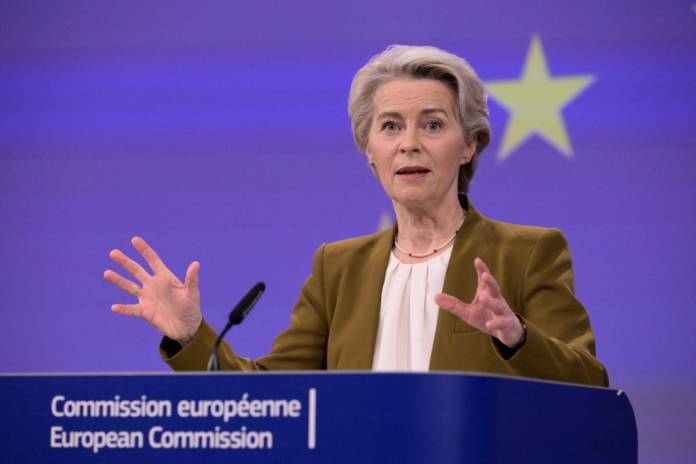BRUSSELS, BELGIUM, NOV 5 (AFP/APP/DNA):Lawmakers grilled the first four would-be members of the next European Commission on Monday, with a personal tale of bereavement bringing unexpected poignancy to the start of hearings to confirm Ursula von der Leyen’s top team.
The hearings offer a rare opportunity for the EU parliament to flex its muscles against the bloc’s powerful executive — and the outside chance a candidate may stumble has kept Brussels on its toes.
But the process got off to a smooth start, with the first four commissioner-designates — Maros Sefcovic of Slovakia, Malta’s Glenn Micallef, Apostolos Tzitzikostas of Greece, and Luxembourg’s Christophe Hansen — comfortably dealing with a three-hour quizzing and being endorsed by members of the EU parliament.
Sefcovic, who is to take over as head of trade and economic security, sailed through his hearing.
He was careful not to give a timetable for the signing of a controversial free trade agreement between the European Union and the Mercosur countries — Argentina, Brazil, Paraguay, Uruguay and Bolivia — which is being contested by France and has aroused the anger of farmers in Europe.
“I hope that this agreement can be concluded on a very equitable basis”, said Sefcovic.
Hansen, who is to take up the agriculture portfolio, became emotional during his hearing as he recounted the recent death of his brother, a farmer, when responding to a question on the mental health pressures faced by farmers.
His brother “fell in the stairs” in what Hansen said was an accident that, while not directly caused by mental health, was linked to work stress.
“There are so many others that suffer accidents because they don’t get to sleep, because they don’t get to rest for a moment,” he said.
Citing delays in the payment of subsidies, pressure from banks and the need for large investments, Hansen said his overworked brother had no time to seek professional help as he went through a divorce.
“It is unacceptable. And it’s killing me,” he said.
Tzitzikostas, who is to take charge of transport, vowed to put forward long-delayed plans for a “single booking system” for train travel in 2025.
Micallef, the most junior member of von der Leyen’s team at 35 and relatively inexperienced, was seen as one of the most vulnerable candidates, but his hearing also went smoothly.
Asked by a right-wing lawmaker to define a woman and whether the EU wanted men to be allowed to compete in women’s sports — a nod to the hot-button issue of transgender rights — he simply replied that sport was “for everyone”.
The relatively calm start might signal that parliamentary groups are unwilling to turn the process into a political fight — with a risk of chain reactions if they go too heavy on a candidate from a rival party.
“I do see the possibility that everyone is so afraid of each other that in the end we will keep the original proposal,” Bas Eickhout of the Greens said ahead of the first hearings.
This week’s hearings run until Thursday before a grand finale on November 12 when von der Leyen’s six vice-president candidates will be heard.
Each EU state nominated one member for von der Leyen’s 26-seat commission, with more than half hailing from the European People’s Party, the biggest force in parliament.
The centrist Renew Europe said it would examine each candidate on their merits, as did the Socialists and Democrats — the second-largest group in parliament — who insist they have no “kill list”.
Still, some fireworks are expected next week for the auditions of Spain’s Teresa Ribera and Italy’s Raffaele Fitto.
Ribera, a socialist with a vast environmental portfolio, will have to reassure sceptical right-wingers of her commitment to pair climate goals with growth.
Fitto, of Giorgia Meloni’s far-right Brothers of Italy party, was handed a vice president role in a nod to the growing influence of the far right after their EU election gains — angering lawmakers on the left and centre.
Among others seen at risk is Hungary’s Oliver Varhelyi, nationalist Prime Minister Viktor Orban’s man in Brussels these past five years, who was caught on microphone calling lawmakers “idiots”.
Last time, lawmakers knocked back France’s Sylvie Goulard at the hearing stage, while the representatives for Hungary and Romania were axed during vetting for conflicts of interest.
Parliament is provisionally scheduled to vote on confirming the entire college of commissioners on November 27. They are to start a five-year term in early December.

















